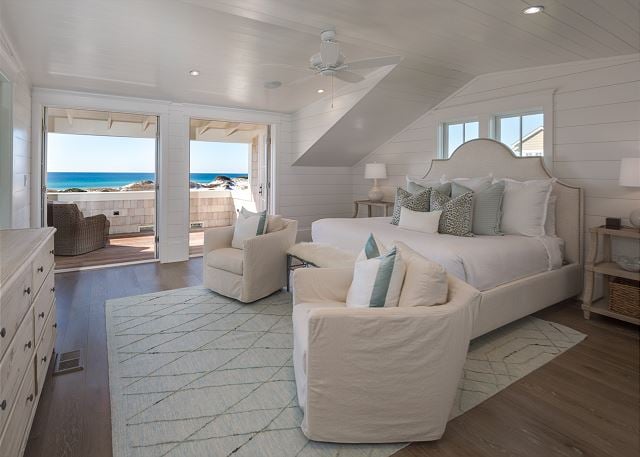
- ...
- Blog
- Travel Trends Chat with Wil Slickers & Jeremy Gall

Breezeway’s Jeremy Gall rejoined Wil Slicker’s ‘Slick Talk’ podcast to reflect on 2020, chat about what’s new at Breezeway, and trends to expect in the new year. Read on below for a snapshot of the interview, or check out the full recording here.
Wil: I’m excited to have you back on. You’re a pioneer in the industry and have accomplished a lot with FlipKey and most recently what you’ve built with Breezeway. Let’s jump right in and I’m excited to hear what’s new!
Jeremy: 2020 has been challenging for everyone in the industry, and operationally, standards have never been higher. It’s dominated the business. Then you have the backdrop of Airbnb filing their S1, which has demonstrated the resiliency of the vacation rental product and how well the hospitality sector has positioned itself.
Wil: Even companies like Expedia are talking about how Vrbo carried their revenue during this time. Why do you think we were the first segment in hospitality to recover so quickly?
Jeremy: It’s clear people wanted a change of scenery during the pandemic. Without the option of getting on a plane, travelers have started to explore more drive-to destinations. Length of stays have increased as remote work has become more and more common, and vacation rentals are the perfect escape. Vacation rentals give guests the opportunity to be responsible by self-isolating in your own space, while getting a much needed change of pace. There’s something really enjoyable about taking a vacation a little closer to home, someplace that’s so easily accessible that you can build a relationship with.
Wil: What are some operational changes you’ve seen in the industry over the last several months?
Jeremy: It’s like that Jurassic 5 song, “Quality Control.” That’s the name of the game - the spotlight is on cleanliness and safety. So many managers were already doing a great job with cleaning and preparing properties, what we noticed was managers on the professional side of the market making tweaks to their existing policies and operations to ensure compliance across the board – crossing their Ts and dotting their Is.
To really stand out, you have to be on top of every little detail. This puts a lot of pressure on owners who self-manage. I think a growing trend we’ll see is more folks from that market adopt professional property management services. Property managers are in a great position to gain market share.
Wil: How important do you think professionalism will be moving into 2021?
Jeremy: People are much more invested in the efficiency of their operation and making sure that they’re running things smoothly. Tech adoption has increased, and I think we’ll also see some of the big operators reconsider whether or not they want to build all their technology.
This should contribute to the trend of managers moving away from an all-in-one solution, and instead, thinking carefully about what pieces of the business are important to them and choosing the right tools to get the job done.
Wil: What exactly do you mean by all-in-one solution? Do you think every PMS system should have an open API to accommodate the different needs of operators?
Jeremy: Most property management software companies are very willing to have an open API and to help their customers pick and choose and find the right pieces to run their business.
They’re smart to have their own tools; they’re smart to have their own revenue management, their own channel management. They want to provide a solution if that’s what you want, but they also want to provide the optionality that if you don’t like their solution, or you feel you need something more, you can plug in, and that can be facilitated. I think it’s a foregone conclusion at this point that that’s how a good portion of the market wants to operate.
Wil: Not sure if this would be considered a trend, but COVID-19 has forced the industry to accept flexibility. A lot of hotels are being more flexible with cancelations and refundable rates, and vacation rentals are offering the same. That also plays a role into the flexibility of our operations.
Jeremy: Totally, and I think this idea of flexibility was exasperated by COVID-19. We actually released a new product this year, a feature enhancement for dynamic scheduling. If you had a reservation (that you’ve scheduled all your property prep for and your guest communication around) and then the reservation is moved, that entire workflow moves automatically with the reservation.
Schedules have had to be very fluid, with reservations being pushed back, or last-minute reservations being made. This is where technology can really enable managers to work smarter.
Wil: Why am I just now hearing about this? I wish I had this when I was managing a hotel!
Jeremy: Hotels were already hinting that they needed to change the way they looked at their inventory to be more responsive to consumer interest for unique and authentic experiences. When we see travel fully resume, it’s going to be very interesting to see how the hotel industry responds - what convergence we’ll continue to see and what products they bring to market to address that.
Wil: Got any hot takes or predictions for 2021?
Jeremy: This concept of cleaning and safety becoming synonymous happened in 2020. I think that will be decoupled in the second half of 2021, and as part of this increased focus on quality assurance and elevated standards, we’ll start spending a little more time talking about the physical safety of the property, how well it’s being maintained.
For more information on how to professionalize your operations, visit our learning page.
Ready to diversify your rental portfolio?
Streamline operations for short-term rentals and multifamily residential units with Breezeway's automated work coordination and guest experience tools to ensure guests and tenant satisfaction.
More from the Blog
Visit the blog


